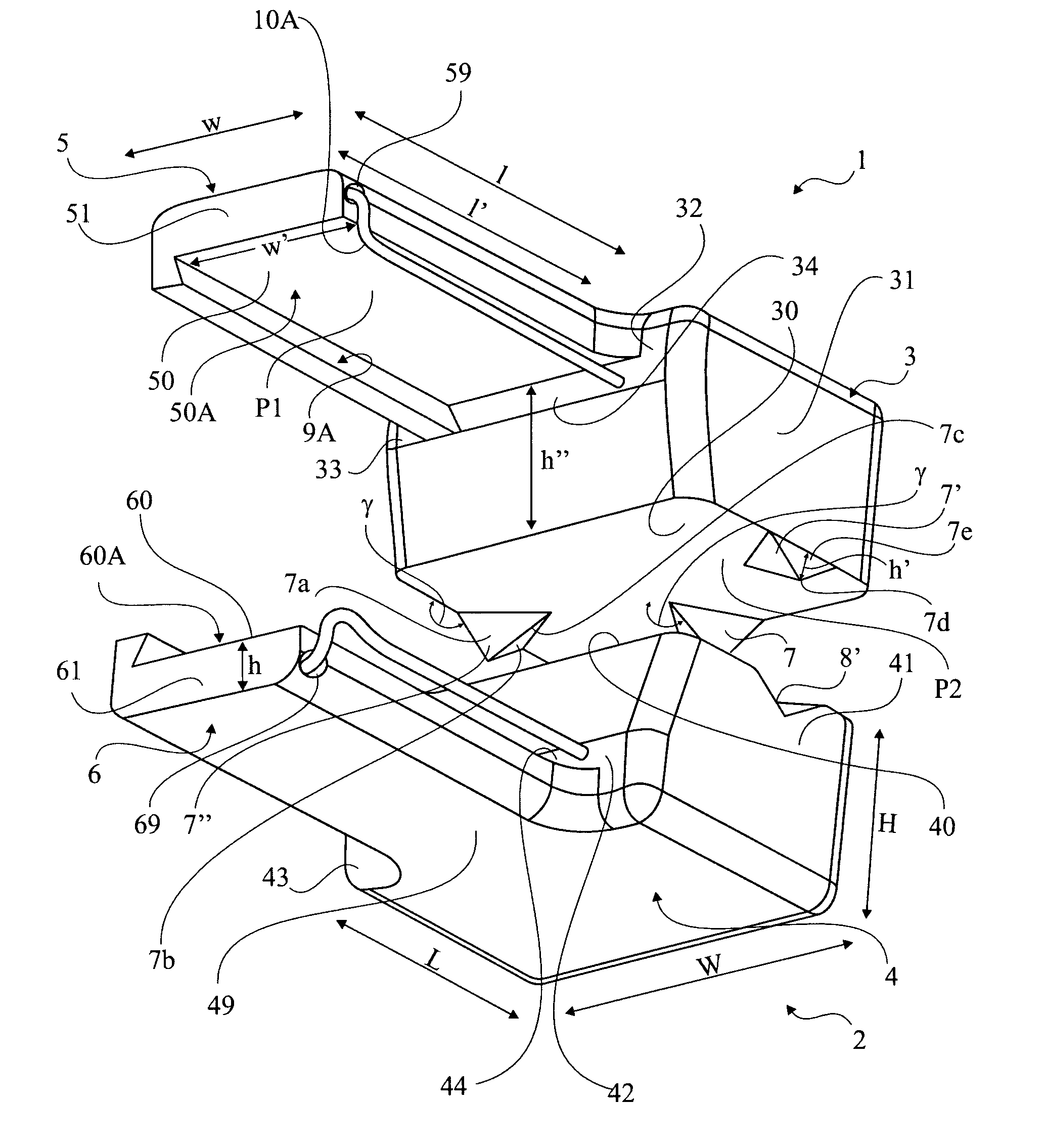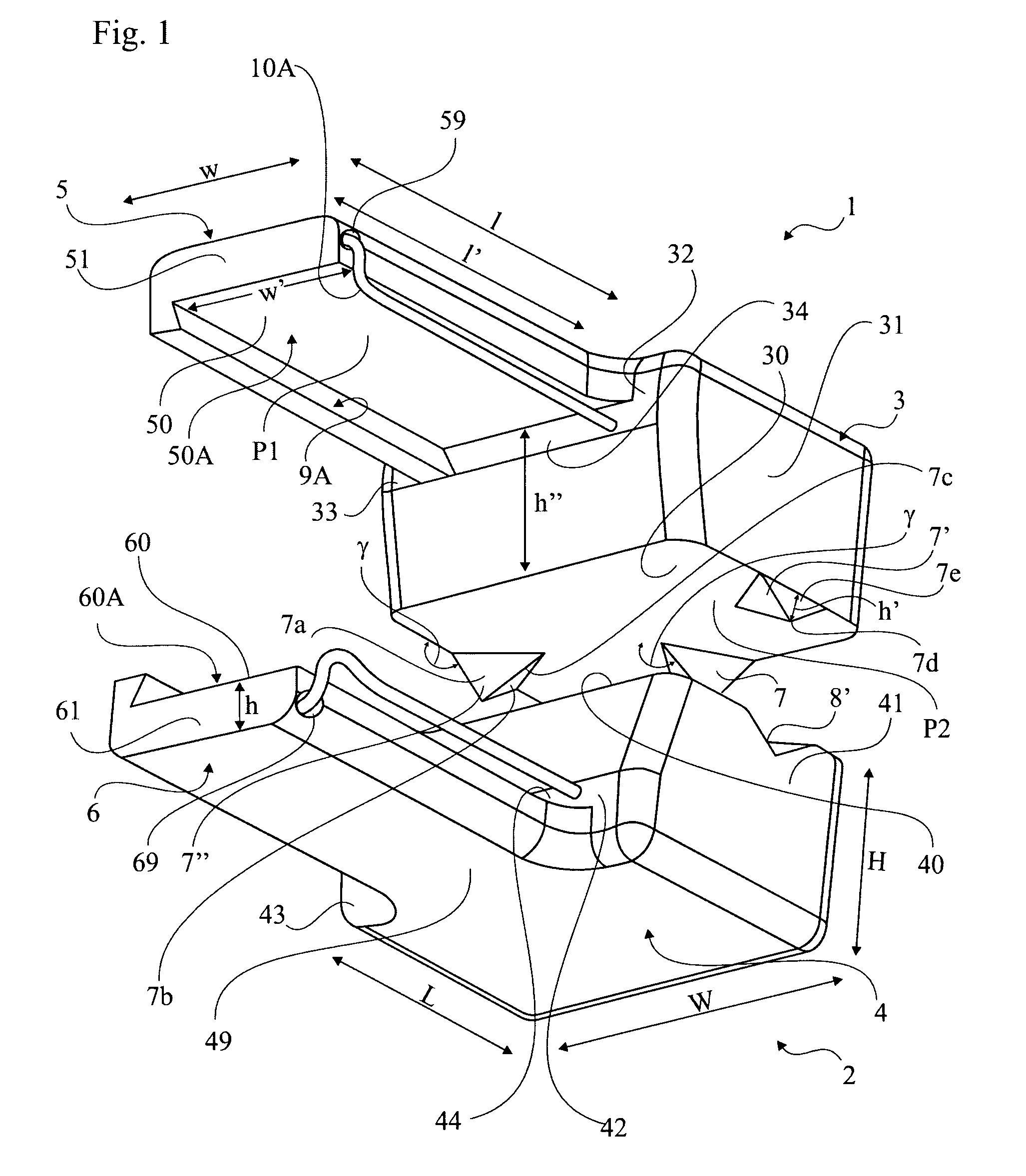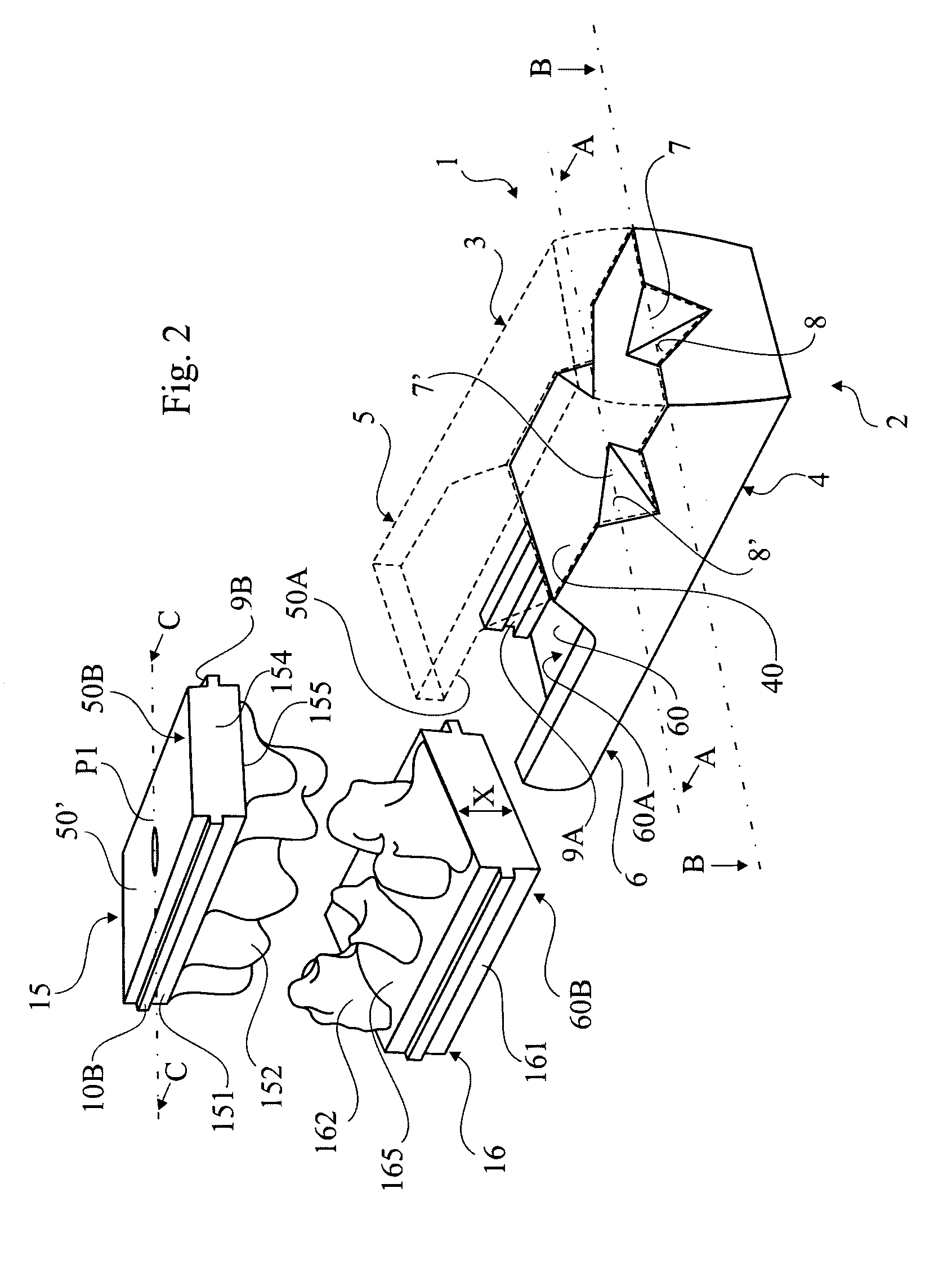Dental model, articulator and methods for production thereof
a technology of articulator and dentition, applied in the field of dentition model, articulator and method for production thereof, can solve the problems of difficulty in adjusting the articulation, etc., and achieve the effects of reducing the number of defects, and reducing the number of articulations
- Summary
- Abstract
- Description
- Claims
- Application Information
AI Technical Summary
Benefits of technology
Problems solved by technology
Method used
Image
Examples
Embodiment Construction
[0042]In FIG. 1 there is shown a perspective view of an articulator according to an embodiment of the present inventions. There is shown an upper portion 1 and a lower portion 2 of said articulator. The upper portion 1 and the lower portion 2 of the articulator are substantially similar in the design, except for their interacting male and a female device respectively, which are described in detail below. As a consequence, both portions 1, 2 will be described jointly in the following. Each portion includes a positioning device 3, 4 and a holding part 5, 6. The holding part 5, 6 includes a support structure 51, 61 in the form of a rigid body having a kind of L-shape in a transversal cross-section. On one side of said holding part 5, 6 there is an interface 50A, 60A arranged to hold a model 15, 16 of at least a part of a dental structure 152, 162 (see FIG. 2). Each interface 50A, 60A includes an engagement arrangement 9A, 10A that enables attachment of the model 15, 16 of a dental stru...
PUM
 Login to View More
Login to View More Abstract
Description
Claims
Application Information
 Login to View More
Login to View More - R&D
- Intellectual Property
- Life Sciences
- Materials
- Tech Scout
- Unparalleled Data Quality
- Higher Quality Content
- 60% Fewer Hallucinations
Browse by: Latest US Patents, China's latest patents, Technical Efficacy Thesaurus, Application Domain, Technology Topic, Popular Technical Reports.
© 2025 PatSnap. All rights reserved.Legal|Privacy policy|Modern Slavery Act Transparency Statement|Sitemap|About US| Contact US: help@patsnap.com



